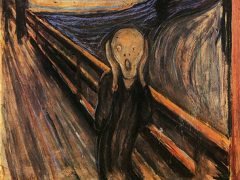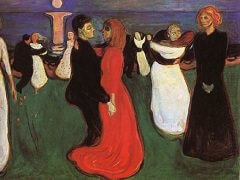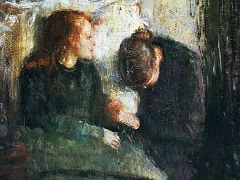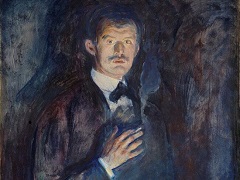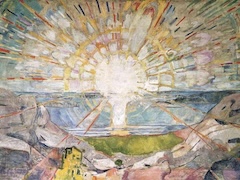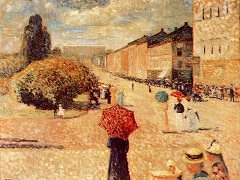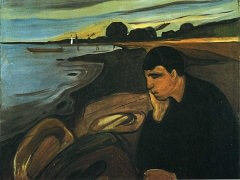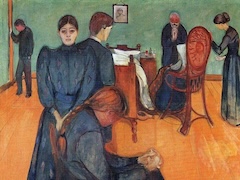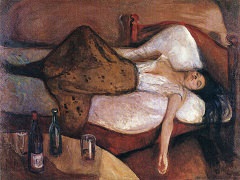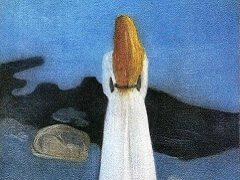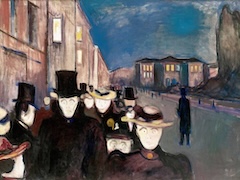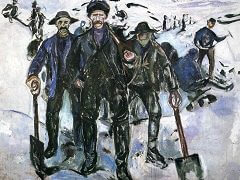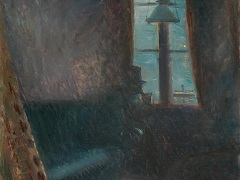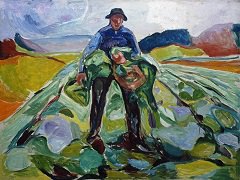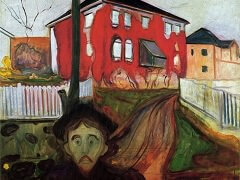The Storm, 1893 by Edvard Munch
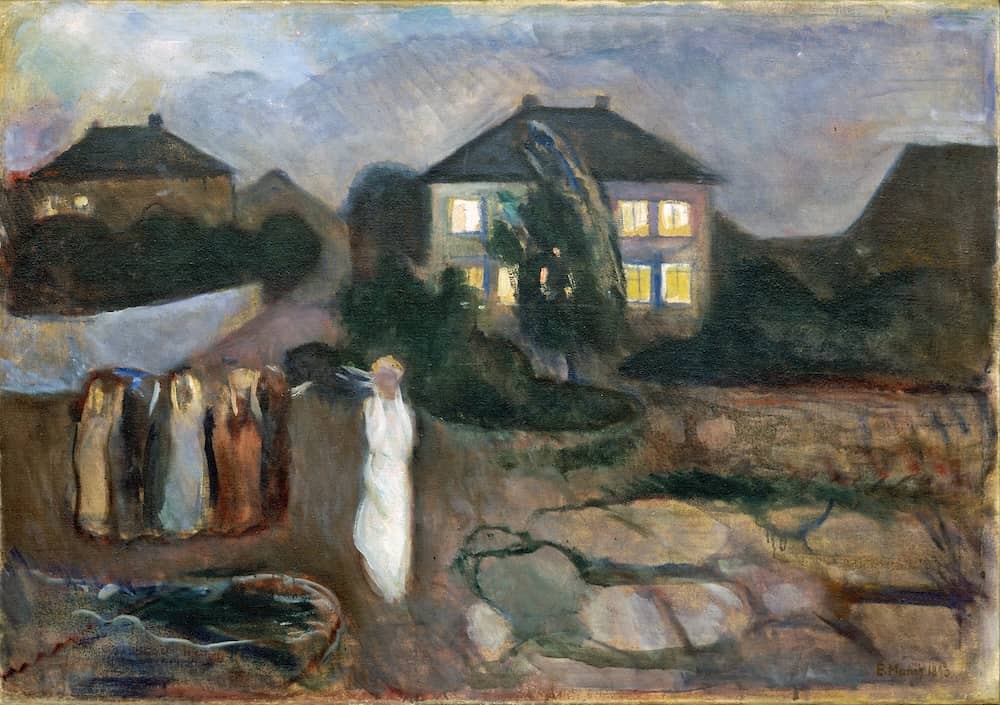
A violent storm at Asgardstrand is said to have inspired this picture. The force of the wind os suggested by the bending of the central tree, continued in the cloud striations above it, and the wisps of hair blown up from the head of the woman in white. The women cover their ears with their hands, as if to shut out the whistle of the wind and the wail of the sea; the central building has been identified and stood on the coast at Asgardstrand. But the blurred forms, softened contours and highly atmospheric treatment give the scene a spectral quality, with the women emerging like phantoms. In consequence it is easy to conceive that nature's turbulence is intended to reflect an inner turbulence of the mind. Just what is this spiritual malaise, however, is difficult to determine.
Here Munch combines several different themes he used in other pictures of the 1890s, producing an enigmatic result. Firstly, the hands placed over the ears, as in The Scream, probably expresses some sort of fear. Secondly, the lonely individual, the woman in white, separates herself from the crowd. Thirdly, this woman walks down the pathway through the rocks towards the sea, not shown but to be reached very soon. Munch often depicted the sea as a medium through which the light of the sun or moon would, to quote Caradoc Evans, 'call virgins to awake'. Dressed in white, this woman is clearly virginal, and storm or no storm, she must be facing the moon, else her costume could not possibly shine with such brilliance. Fourthly, there is the background building which the women have apparently left, with the tree bisecting it like a nose between quadruple eyes.
In some of Munch's paintings such buildings are obviously sources of fear and that may be the meaning intended here. It has been suggested that the building is lit up because a wedding feast is taking place. Were this the case, the bride would be leaving in fearful anticipation to call on natural forces to arouse sexual desire; in Munch's mind man's life was part of, and wholly determined by, the general evolution of nature, and sexual intercourse associated with fear of the inevitable cycle of life and death.

